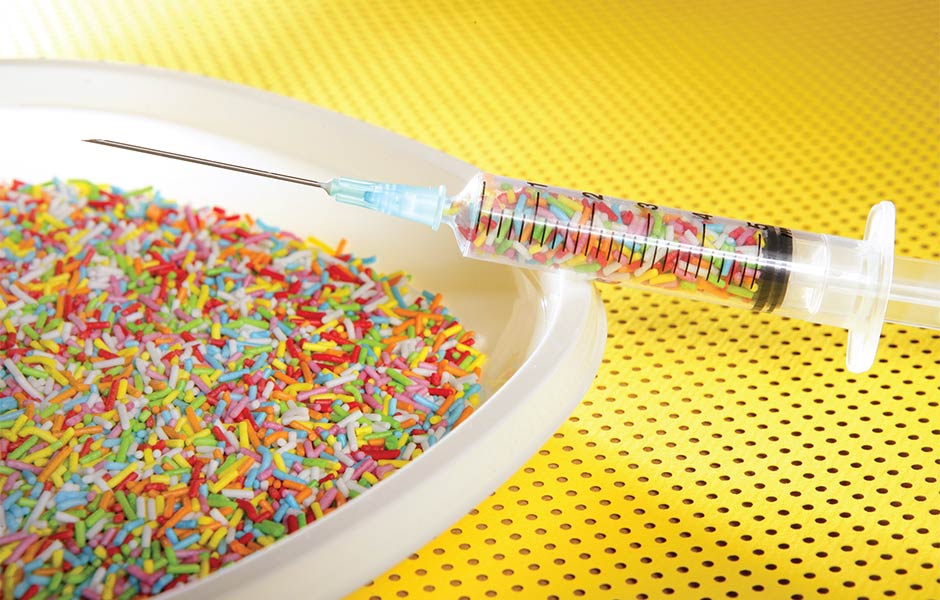By Cindi Juncal, The Noble Path Foundation | Download this article (pdf).
Our mission at The Noble Path Foundation is to raise awareness on the importance of sound nutrition and lifestyle choices for our youth, because we firmly believe that it is their health that determines our future. One of the reasons we focus on kids and young adults for our Real Food Forums in grades K-12 is because they’ve grown up in a world where real food is the exception instead of the norm. The proliferation of highly-processed, ultra-convenient, food-like products in our diets, which took root in the Baby Boomer era and grew worse with each subsequent generation (X through Z, and now Alpha), has proven that the further away we get from actual whole foods, the sicker we become.
To make matters worse, the science is becoming clear that not only are we creating a world full of children who will no longer have a greater life expectancy than their parents; but we are also cultivating generations of junk-food-aholics, who will find it increasingly difficult to resist the very foods that are causing the diseases which are killing them.
“No addictive drug can fire up the reward circuitry in our brains as rapidly as our favorite foods.”
Michael Moss is a former New York Times Pulitzer Prize-winning investigative reporter whose highly acclaimed 2013 book, Salt Sugar Fat: How the Food Giants Hooked Us, took us into the private board rooms and secret back rooms of all the major food processing giants and exposed their manipulation of these three ingredients to make the most blissfully addicting products possible.
In a review of his latest book, Hooked: Food, Free Will and How the Food Giants Exploit Our Addictions, the New York Times writes, “Mr. Moss explores the science behind addiction and builds a case that food companies have painstakingly engineered processed foods to hijack the reward circuitry in our brains, causing us to overeat and helping to fuel a global epidemic of obesity and chronic disease.” In it, Moss compares the processed food industry to tobacco companies like Philip Morris, who for decades lied about the harmful and addictive nature of cigarettes, only to admit to its habit-forming tendencies later. In fact, the best description of addiction in the book comes from the highest executive of Philip Morris himself, CEO Michael Szymanczyk, when on the witness stand in 2000 said, “My definition of addiction is a repetitive behavior that some people find difficult to quit.”
“Will the smell of cinnamon cue us to think of a sweet potato or Cinnamon Toast Crunch cereal?”
The importance of early childhood intervention when forming healthy food habits is underscored in the parts of Moss’ book which deal with our memories. He notes that memory —and nostalgia in particular— plays a big role in the foods we crave.
“What we eat is all about memory. And we begin forming memories for food at a really early age, possibly even in the womb, depending on what our mother is eating. And we keep those memories for a lifetime. They don’t go away. … And the more we eat these products, the deeper those memory channels go. And so the food industry, knowing that, spends lots of time trying to shape the memories that we have for their products.”
As an example, he continues, “The soda companies discovered that if they put a soda in the hands of a child when they’re at a ballpark with their parents, that soda will forever be associated with that joyous moment,” he says. “So later on in life, when that child now wants to experience a joyous moment, they’re going to think of soda.”
Combine the pull of these pleasurable memories with the rapid-fire response our brain gets from sugar and you create an almost uncontrollable urge which can supersede our body’s own natural defense system against overeating.
“Speed kills. Or rather, speed addicts.”
“The ability of a substance to excite the brain and set in motion the behavior that leads us to act compulsively is in large part a matter of how fast the substance reaches the brain,” explains Moss. “Faster leads to a stronger grip. Speed is a key reason that tobacco is as likely to hook you as is heroin, because the risk of addiction is as much about the method of delivery as it is the substance being imbibed. Draw on a cigarette, and the smoke will carry the nicotine from your mouth to the blood in your lungs to your brain in ten seconds.”
This infamous ten-second rule also applies to smoking crack cocaine and injecting drugs. But when compared to sugar, it’s like a race between the tortoise and the hare. From its first touch on the tongue, sugar hits the brain in only a little more than half a second, or “six hundred milliseconds, to be precise” says Moss. “That’s nearly twenty times faster than cigarettes.”
Turns out, the other dietary culprits in highly processed foods – salt and fat – clock in at roughly the same speed as sugar when it comes to exciting the brain. How do they accomplish this? According to Moss, “They cheat. Salt, sugar, and fat use our anatomy, and the way we are built to be drawn to food. Drugs and tobacco have to get into our bloodstream in order to travel up to the brain, but food has a special path to the brain that maximizes its speed.”
“Teach kids to fall in love with an alternative to processed food.”
Moss stops short of accusing the industry of evil intent. But even if creating an obesity epidemic or skyrocketing healthcare costs treating food-induced chronic disease wasn’t the goal, the tactics these food giants use to keep us coming back for more of their harmful products could (and should) at the very least, be labeled predatory profiteering. Recent memories will remind us that the vast majority of Americans who died of Covid-19 had underlying conditions traceable to their diets. And the worst part of this predation? They are feeding on our most precious commodity –our children– in hopes of creating lifelong addicts.
As Moss summarized in one of his interviews: “Food resonates so large in our memory because food looms so large in our lives. The act of eating touches everything we experience, everywhere we go, everyone we know, and everything we feel. As much as we are what we eat, we are what we remember, which explains why most everyone has a food memory that helps define who they are.”
If we truly want to create a healthy world, it’s imperative we focus on raising healthy kids by encouraging healthy habits, which we now know will only intensify as they grow older. Let’s take back the words “happy meal” from the fast food industry and turn them into childhood memories of family occasions fueled by nutritious, wholesome food – instead of greasy paper wrappers and cartons in a paper bag. Then, hopefully, there will be no need for an intervention later.
###
Cindi is President and Founder of The Noble Path Foundation, a nonprofit 501(c)(3) dedicated to raising awareness on childhood obesity, T2 diabetes and the importance of sound nutrition and lifestyle choices for our youth. For sources and links to the statistics mentioned in this article, please visit our website and search for the article under our blog at www.thenoblepathfoundation.org.
SOURCES:
How Ultra-Processed Foods are Killing Us, Marion Nestle, The Atlantic
Michael Moss’s Book ‘Hooked’ Explores Food Addictions And How To Overcome It
This is your brain on Junk Food: In ‘Hooked,’ Michael Moss Explores Addiction
Why We Should Think About Junk Food Like Cigarettes
What is Food Addiction? Robert Lustig website
Ahmed, S.H., K. Guillem, and Y. Vandaele, Sugar addiction: pushing the drug-sugar analogy to the limit. Curr Opin Clin Nutr Metab Care, 2013. 16(4): p. 434-9.
Avena, N.M., et al., After daily bingeing on a sucrose solution, food deprivation induces anxiety and accumbens dopamine/acetylcholine imbalance. Physiol Behav, 2008. 94(3): p. 309-15.


